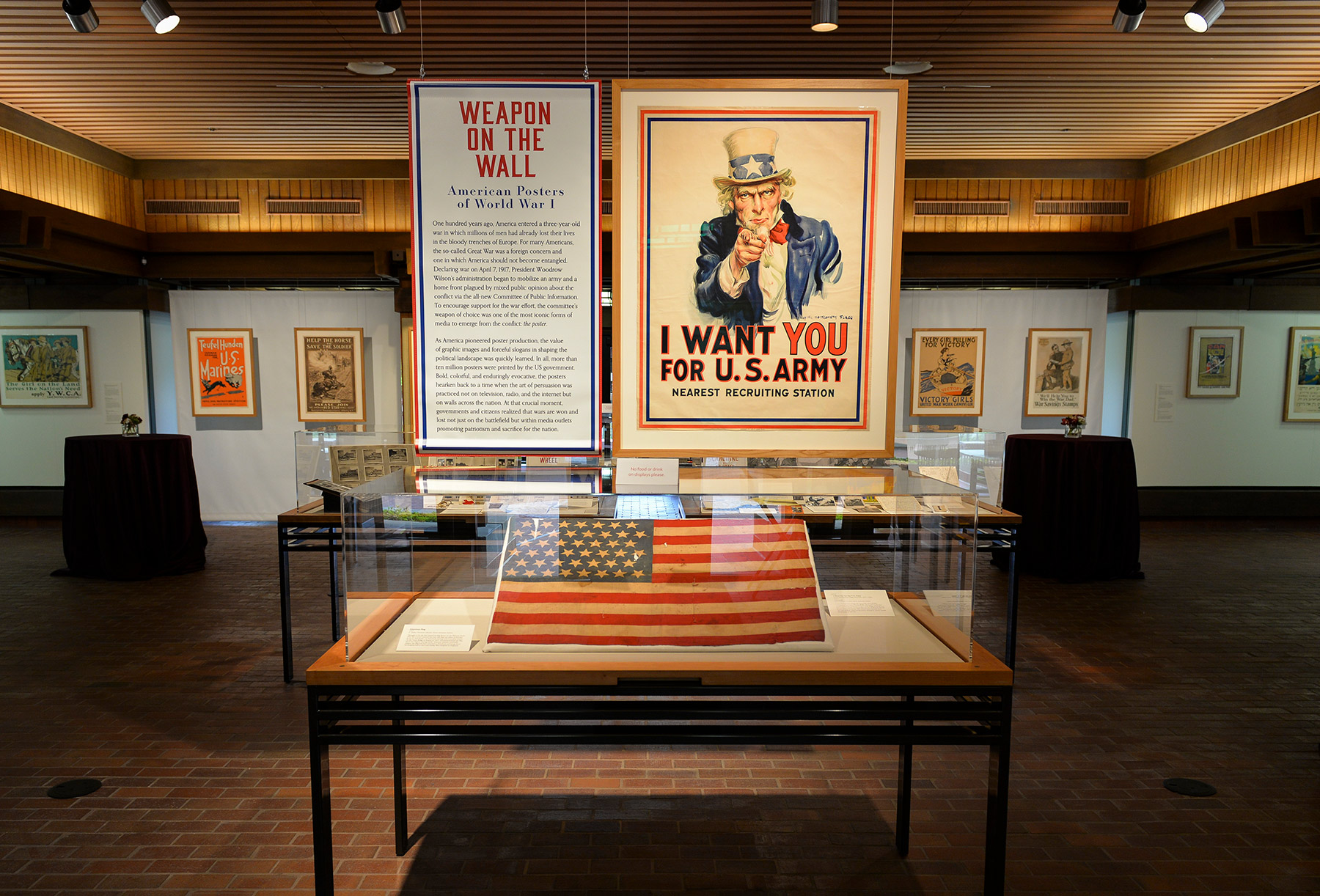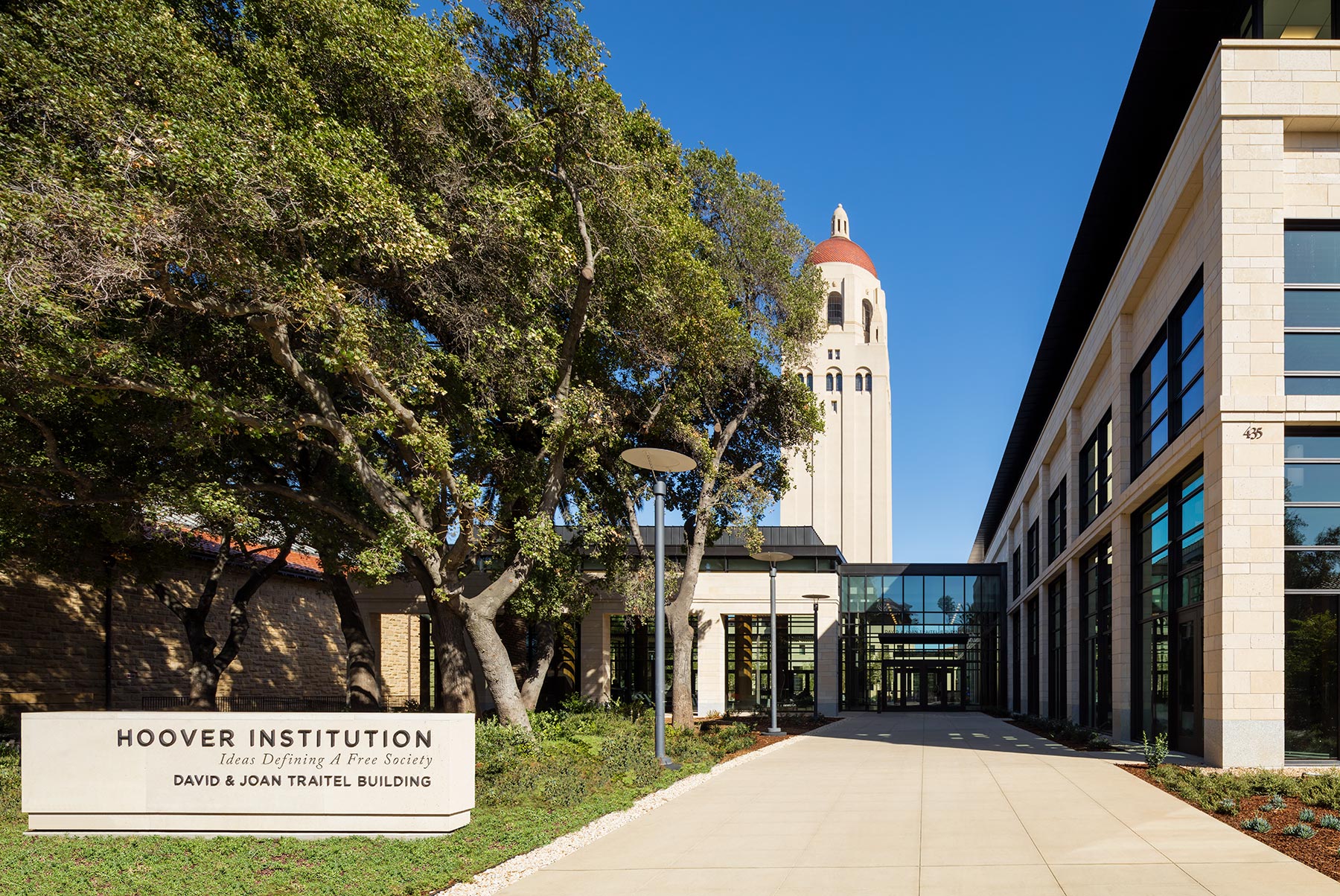
Ideas Defining A Free Society
Hoover Institution
Hoover Institution
2017 Annual Report
“This Institution supports the Constitution of the United States, its Bill of Rights and its method of representative government. Both our social and economic systems are based on private enterprise from which springs initiative and ingenuity. . . . Ours is a system where the Federal Government should undertake no governmental, social or economic action, except where local government, or the people, cannot undertake it for themselves. . . . The overall mission of this Institution is, from its records, to recall the voice of experience against the making of war, and by the study of these records and their publication, to recall man’s endeavors to make and preserve peace, and to sustain for America the safeguards of the American way of life. This Institution is not, and must not be, a mere library. But with these purposes as its goal, the Institution itself must constantly and dynamically point the road to peace, to personal freedom, and to the safeguards of the American system.”

excerpt from herbert hoover’s 1959
statement to stanford’s board of trustees
NOTE FROM THE DIRECTOR & THE CHAIRMAN
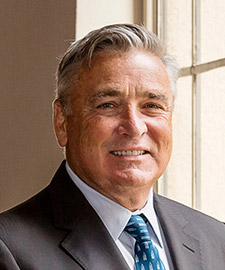
Tad and Dianne Taube Director
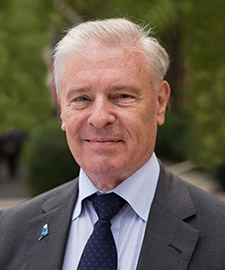
Chairman, Board of Overseers
Throughout the Hoover Institution’s history, our supporters and fellows have stood together in the arena of public policy to address the most significant issues of our time, helping sustain prosperity, peace, and the exceptional foundations of our country. Today we find ourselves at another crucial turning point for US policy, with new leadership in Washington and a world inundated with challenges that people in our communities, our universities, and our capitals are struggling to understand. As highlighted in this 2017 Annual Report, our impact in each of these areas has never been stronger. Mindful of the year’s accomplishments and the extraordinary dedication of our supporters, we have never looked forward with greater hope.
We invite you to read further about this work.


THE DAVID & JOAN TRAITEL BUILDING
Announcing the Grand Opening
The Traitels’ extraordinary gift opened a new chapter in the institution’s hundred-year history of evolution and growth. Several other Hoover supporters joined them with major contributions to fund the initiative fully. Designed by Boston architecture firm William Rawn Associates with assistance from CAW Architects of Palo Alto, the 55,000-square-foot Traitel Building is a beautiful yet highly functional addition to the Hoover Institution and Stanford campuses. Carefully managed by Hoover and Stanford, the project remained on schedule and on budget throughout the entire construction process. This year we are honored to announce that the new David and Joan Traitel Building, named in honor of its lead donors, is complete.
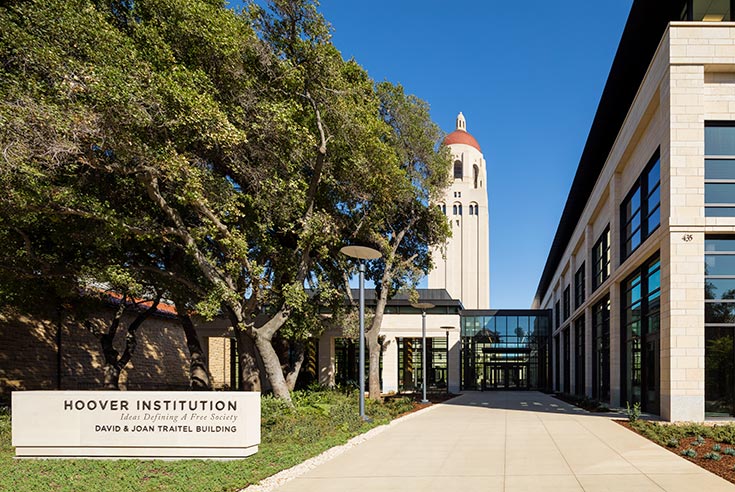
435 LASUEN MALL The Traitel Building’s vibrant, approachable public entrance ends the long-standing seclusion of Hoover facilities within the Stanford University campus.
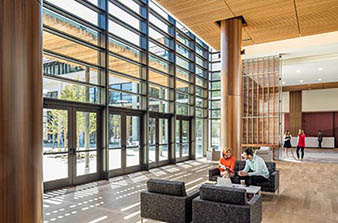
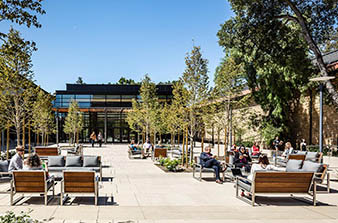
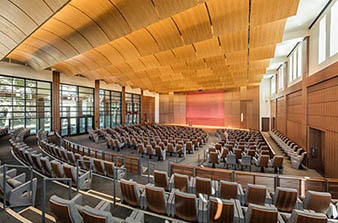
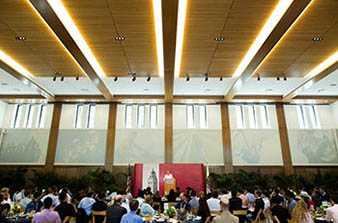
A Look Inside Clockwise from top left: Glass-walled Welcoming Pavilion. Fairweather Courtyard, sponsored by Hoover overseer Arthur Hall and his wife, Joanne, and named for their philanthropic foundation. Blount Hall, the 440-person dining and multipurpose room named for Hoover overseer and project supporter William Blount. Hauck Auditorium, the theater-style venue with capacity for 400 guests named for Overseer Everett “Sparky” Hauck and his wife, Jane.
Other Photos: Tim Griffith
Research & Scholarship
Highlights from the year’s more than 150 conferences and meetings—a staple of Hoover scholarship—include the Restoring Prosperity: Contemporary and Historical Perspectives conference. Organized by John B. Taylor, the George P. Shultz Senior Fellow in Economics, along with Senior Fellow Lee Ohanian and Jesús Fernández-Villaverde of the University of Pennsylvania, the conference assessed the fundamentals underlying continued subpar economic performance in the wake of the 2008 financial crisis and discussed policy actions to put the global economy back on track.
The Workshop on the Future of Western Civilization, organized by Senior Fellow Russell A. Berman and W. Glenn Campbell Research Fellow Kiron K. Skinner, explored challenges to Western values and institutions. Hoover fellows and other scholars discussed such topics as globalization, populism, and international threats including Islamist violence, a globally assertive Russia, and an economically rising China. The Elections, Policymaking, and Economic Uncertainty conference, hosted in partnership with the Becker Friedman Institute at the University of Chicago, addressed the causes and effects of policy uncertainty in the context of democratic decision making. The Structural Foundations of Monetary Policy conference brought Hoover fellows and other leading economists together with Federal Reserve System leaders for direct, big-picture discussions of contemporary monetary policy challenges.
RSD17_041_1225a.jpg)
Left to right: Federal Reserve Bank presidents Eric Rosengren, James Bullard, and Charles Evans, along with Senior Fellow John H. Cochrane.
DSC_8541.jpg)
Alan Greenspan speaks at Hoover’s Elections, Policymaking, and Economic Uncertainty Conference.
2017 Research Highlights
Hoover fellows and cochairs of Hoover’s Herbert and Jane Dwight Working Group on Islamism and the International Order Russell A. Berman and Charles Hill developed another major research project in the final months of the 2016 election: a refocused policy framework titled Ten Proposals on the Middle East for the New US Administration. The group followed their initial proposals with a postelection series exploring US policy in Egypt under President Obama, the common ideological threads underlying radical Islamist movements, and the history and motivations of the Iranian regime. Group members then presented their research on Capitol Hill, before the National Security Council, and in a Hoover Institution in Washington policy forum.
Hoover’s Jean Perkins Foundation Working Group on National Security, Technology, and Law published nine new legal and technical analyses of cyber security issues as part of its Aegis Paper Series, including Hank J. Holland Fellow in Cyber Policy and Security Herbert Lin’s Attribution of Malicious Cyber Incidents: From Soup to Nuts. In addition, drawing lessons from her experiences on the frontlines of democratic change, Condoleezza Rice, the Thomas and Barbara Stephenson Senior Fellow at Hoover and the sixty-sixth secretary of state, released her new book Democracy: Stories from the Long Road to Freedom.

Policy Leadership in a New Administration
General Jim Mattis Appointed US Secretary of Defense
A 43-year US Marine with a legendary reputation as a warrior and scholar, Secretary of Defense Mattis came to Hoover in 2013 shortly after retiring as commander of the United States Central Command. First as an Annenberg Distinguished Visiting Fellow and later as the Davies Family Distinguished Visiting Fellow, Mattis’s countless contributions to Hoover scholarship include coediting the landmark civil-military relations study Warriors and Citizens: American Views of Our Military and contributing to the Blueprint for America project.
National Security Adviser H. R. McMaster
Shortly after selecting Mattis as secretary of defense, President Trump appointed Lieutenant General H. R. McMaster, a Hoover Institution visiting fellow and National Security Affairs Fellowship Program alumnus, as national security adviser. A renowned military strategist and scholar, McMaster has written widely in publications including The Caravan and the Hoover Digest.
Educating Americans in Public Policy
The Mary Jo and Dick Kovacevich Initiative at the Hoover Institution
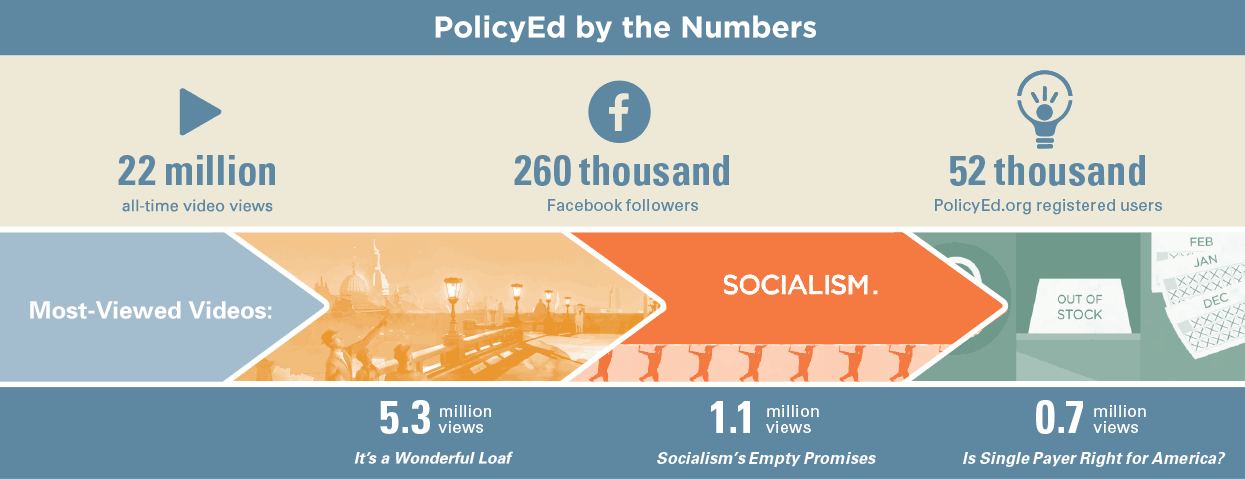
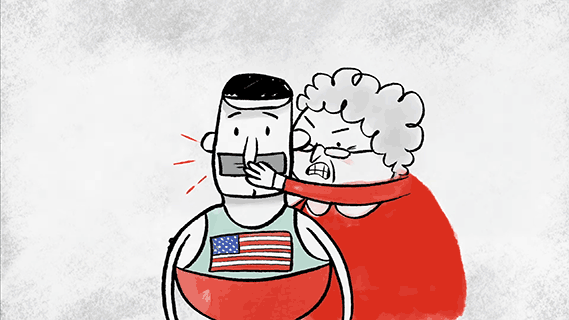
Intellections are sixty- to ninety-second animated videos that cover trending public policy issues in an engaging format that targets younger audiences, released and paired with supplementary resources via PolicyEd.org.

Hoover’s new Blueprint for America video series illustrates the lessons of Hoover’s landmark policy handbook of the same name.
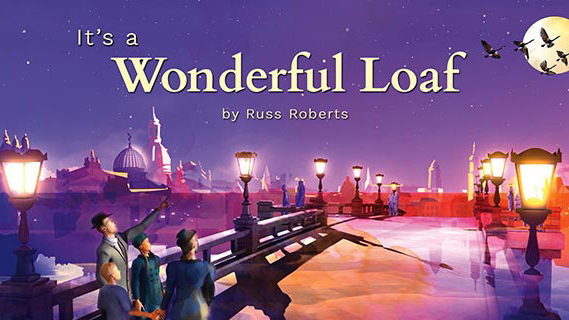
Just below the surface of any ordinary town is a mystery. A vast network of farmers, millers, bakers, and merchants coordinate with seemingly impossible precision to provide as much bread of as many different varieties as consumers demand, yet no one directs their activities. Written by Russ Roberts, the John and Jean De Nault Research Fellow at Hoover, the new short animated film It’s a Wonderful Loaf tells a story about the hidden economic order that explains this puzzle.
Summer Policy Boot Camp
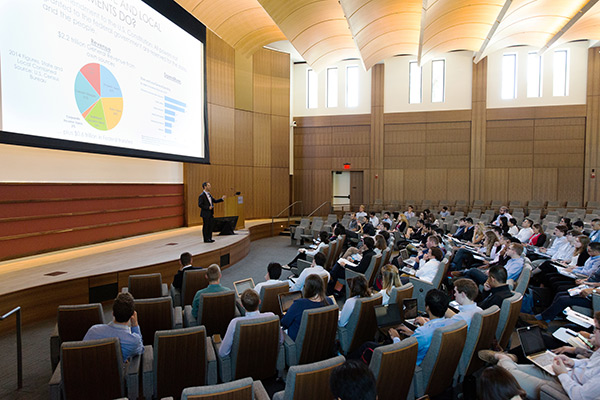
Senior fellow and Boot Camp co-organizer Joshua D. Rauh lectured on the true size of public pension liabilities.
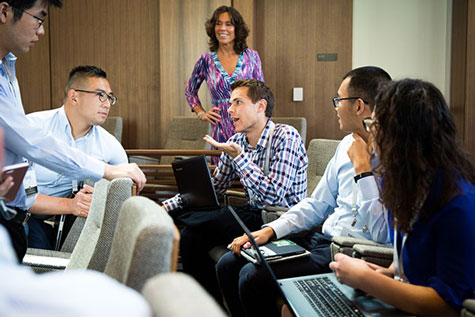
Following their joint lecture, Hoover fellows Stephen D. Krasner and Kori Schake asked students to form groups and develop alternatives to US policy toward North Korea.
“One of the important contributions of this program is not just knowledge; it’s getting inspired about what you can do in your future that will help others.”
Nina, University of St. Gallen, Switzerland
COMMUNICATIONS
Targeted Media Outreach
Behind Hoover fellows’ consistent presence in the news is a network of relationships developed through numerous targeted media outreach programs. These include the William and Barbara Edwards Media Fellowship Program, which this year brought more than twenty-five top reporters, editors, and producers to Hoover to work directly with fellows. Hoover hosted more than thirty-five journalists from leading outlets in its Media Roundtables this year, offering daylong, issue-focused group discussions with fellows. Building from those connections, media placements for the year included more than 500 appearances on television, 560 on radio, and nearly 1,000 op-eds and articles.
Follow our Fellows inthe Hoover Daily Report
Leadership Forum
Hoover’s Leadership Forum allows fellows to meet directly with leaders in the government, business, and world communities to discuss policy challenges in practice. This year’s participants included Nebraska senator Ben Sasse, President Trump’s Director of the Office of Management and Budget Mick Mulvaney, Wisconsin representative Mike Gallagher, and former Indiana governor Mitch Daniels.
RSD17_043_0046a.jpg)
Leonard and Shirley Ely Senior Fellow John F. Cogan (left) speaks with OMB director Mick Mulvaney before a Hoover Leadership Forum.
DIGITAL MEDIA
Other Digital Products Available at Hoover.org
Podcasts
- The Classicist, by Victor Davis Hanson
- The Libertarian, by Richard Epstein
- Security by the Book, by Jack Goldsmith and Benjamin Wittes
- Uncommon Knowledge, by Peter Robinson
Digital Journals
- The Caravan, the journal of Hoover’s Herbert and Jane Dwight Working Group on Islamism and the International Order
- Eureka, a Hoover journal on California policy
- Defining Ideas, highlighting individual scholarship by fellows
Selected Books Published by the Hoover Institution Press, September 2016–August 2017
-
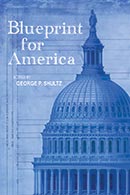 Blueprint for America, edited by
Blueprint for America, edited by
George P. Shultz -
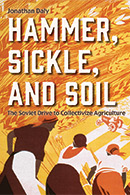 Hammer, Sickle, and Soil: The Soviet Drive to Collectivize Agriculture, by Jonathan Daly
Hammer, Sickle, and Soil: The Soviet Drive to Collectivize Agriculture, by Jonathan Daly
-
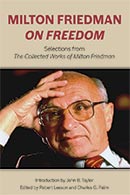 Milton Friedman on Freedom: Selections from The Collected Works of Milton Friedman, edited by Robert Leeson and Charles G. Palm
Milton Friedman on Freedom: Selections from The Collected Works of Milton Friedman, edited by Robert Leeson and Charles G. Palm
-
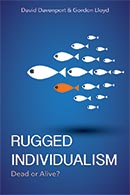 Rugged Individualism: Dead or Alive?, by David Davenport and Gordon Lloyd
Rugged Individualism: Dead or Alive?, by David Davenport and Gordon Lloyd
The Hoover Institution in Washington
The office’s near-daily events attract high-profile attendees and speakers, which recently included then secretary of defense Ashton B. Carter, House majority leader Kevin McCarthy, and retired general and former CIA director David Petraeus. The office also leads the Stuart Family Congressional Fellowship Program, which immerses congressional staff in Hoover research at the institution’s Stanford University campus. Fellows also testified eleven times before Congress this year and hosted thirteen briefings on Capitol Hill.
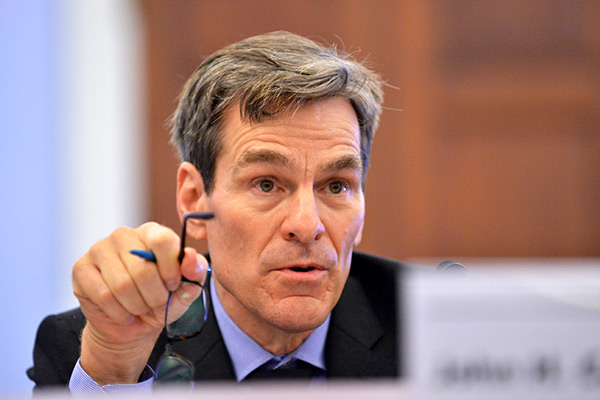
Senior Fellow John H. Cochrane.
Selected Congressional Testimony
September 14, 2016 Senior Fellow John H. Cochrane testified in front of the House Committee on the Budget on “Growing Risks to the Budget and the Economy.”
February 1, 2017 Research Fellow Adam J. White testified before the Senate Committee on Commerce, Science, and Transportation on “A Growth Agenda: Reducing Unnecessary Regulatory Burdens.”
March 28, 2017 Senior Fellow Stephen D. Krasner testified before the House Committee on Foreign Affairs on “The Budget, Diplomacy, and Development.”
“Why has growth halved? The most plausible answer is, I think, simple and sensible: Our legal and regulatory system is slowly strangling the golden goose of growth.”
Senior Fellow John H. Cochrane, speaking before the House Committee on the Budget
Library & Archives
This work has culminated in what today is one of the world’s largest and most significant historical repositories in the world, as well as a rich array of programs that enable deep engagement with Hoover’s collections by scholars, students, and the general public.
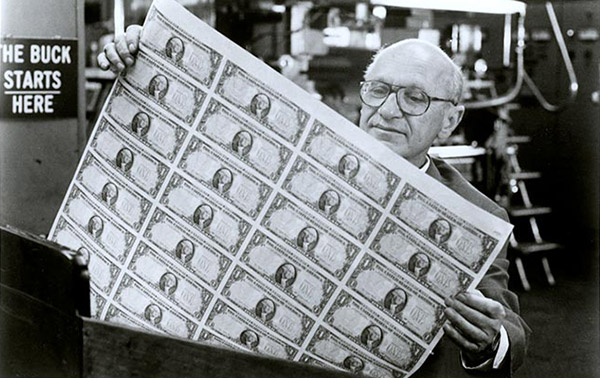
In addition to letters and documents, the Milton Friedman Papers contain candid photographs as well as publicity stills from Friedman’s popular PBS series Free to Choose.
The Collected Works of Milton Friedman
Digital access allows the Library & Archives to reach audiences far exceeding the thousands of visitors who study collections in person each year. Among this year’s numerous digitization initiatives was the launch of the largest collection of Milton Friedman’s work available on the web, featuring more than 1,500 videos, essays, op-eds, personal papers, and other materials by the Hoover fellow and Nobel laureate. Users can browse this collection by curatorial themes, publication types, and item formats, allowing for the continued study and appreciation of the work and life of one of the twentieth-century’s most influential economists.
Explore The Collectionexhibitions
Unpacking History
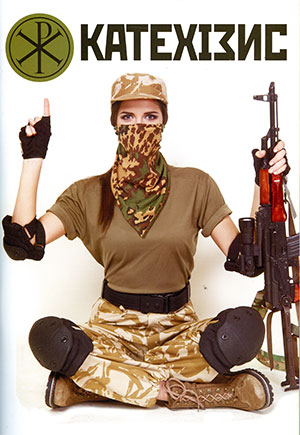
Unpacking History: New Collections at the Hoover Institution Library & Archives (September 27, 2016–February 25, 2017) celebrated the diversity and historical significance of Hoover’s holdings by asking each Library & Archives curator to select a favorite rare and intriguing item from recently acquired collections. Pictured here is a selection by Anatol Shmelev, the Robert Conquest Curator of the Russia and Eurasia Collection, taken from Hoover’s holdings of difficult-to-acquire publications of volunteer battalions that formed to bolster the regular Ukrainian army in fighting Russian-backed separatists.
Weapon on the Wall
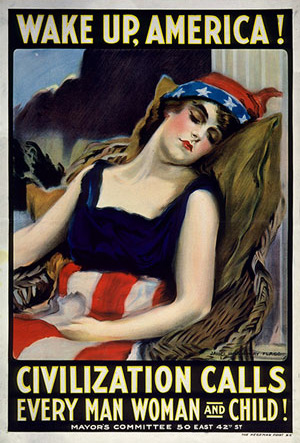
Drawing from Hoover’s world-renowned archive of more than 130,000 posters, Weapon on the Wall: American Posters Of World War I (April 5, 2017–September 2, 2017) marked America’s entry into the First World War by exploring one of the most powerful tools the country used to persuade its public to support and sustain the war effort. Pictured here is a 1917 poster by artist James Montgomery Flagg (Poster Collection US 4647) that was featured in the exhibition.
People & Support
We offer special recognition to those individuals whose exceptional contributions made possible the accomplishments highlighted in this report: Hoover’s overseers, who help guide us in pursuing our mission; the generous members of the Hoover Council and its Leadership Circle and Director’s Circle; and all the supporters, fellows, and staff whose dedication shapes a better world for our generation and those that come after us.
To learn more about joining this community of supporters and scholars working together to advance ideas defining a free society, contact Hoover’s Office of Development or visit Hoover.org/get-involved.
HOOVER INSTITUTION
Office of Development434 Galvez Mall, Stanford University
Stanford, CA 94305-6003
Tel. 650-725-6715
hooverdevelopment@stanford.edu Download Full Report

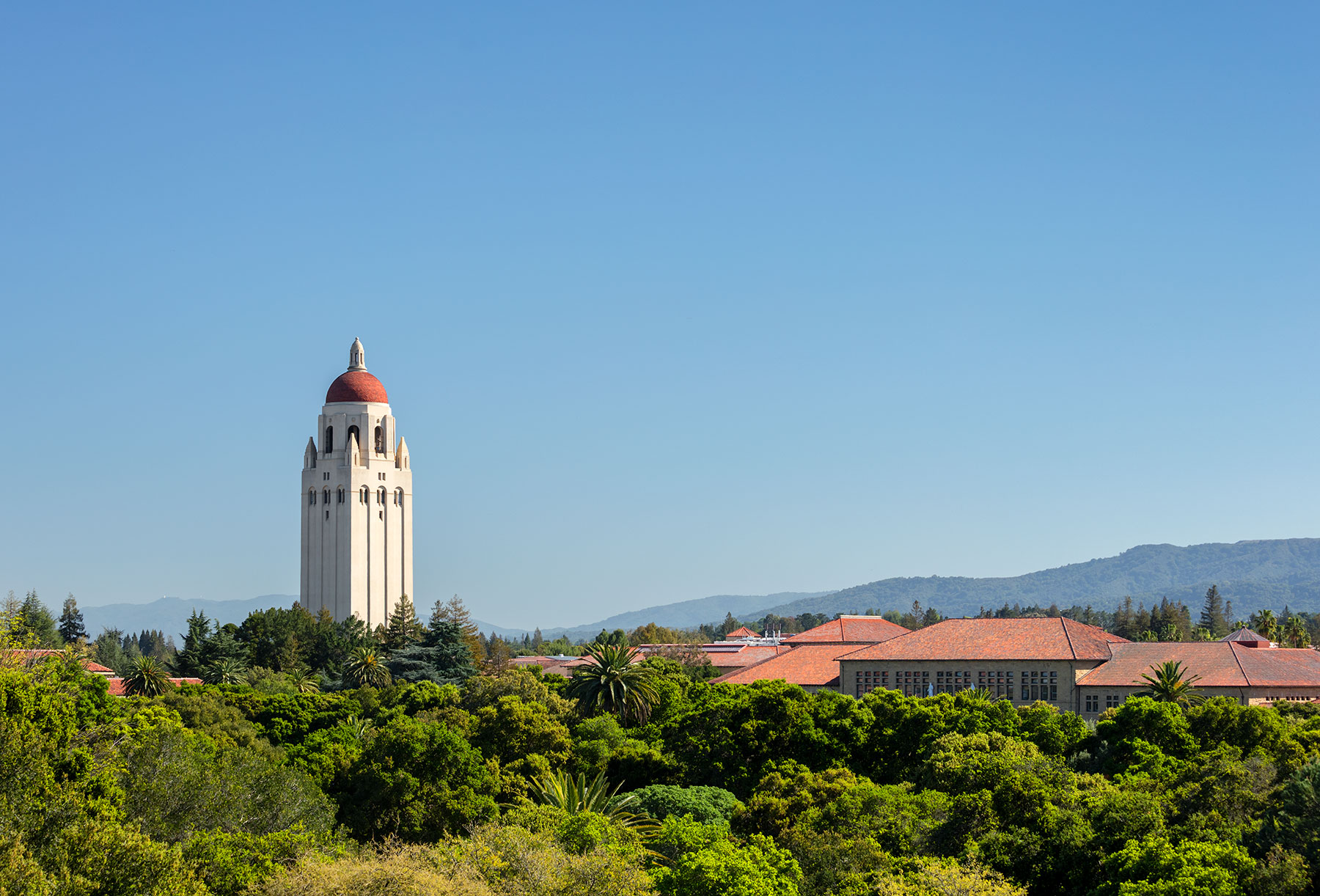
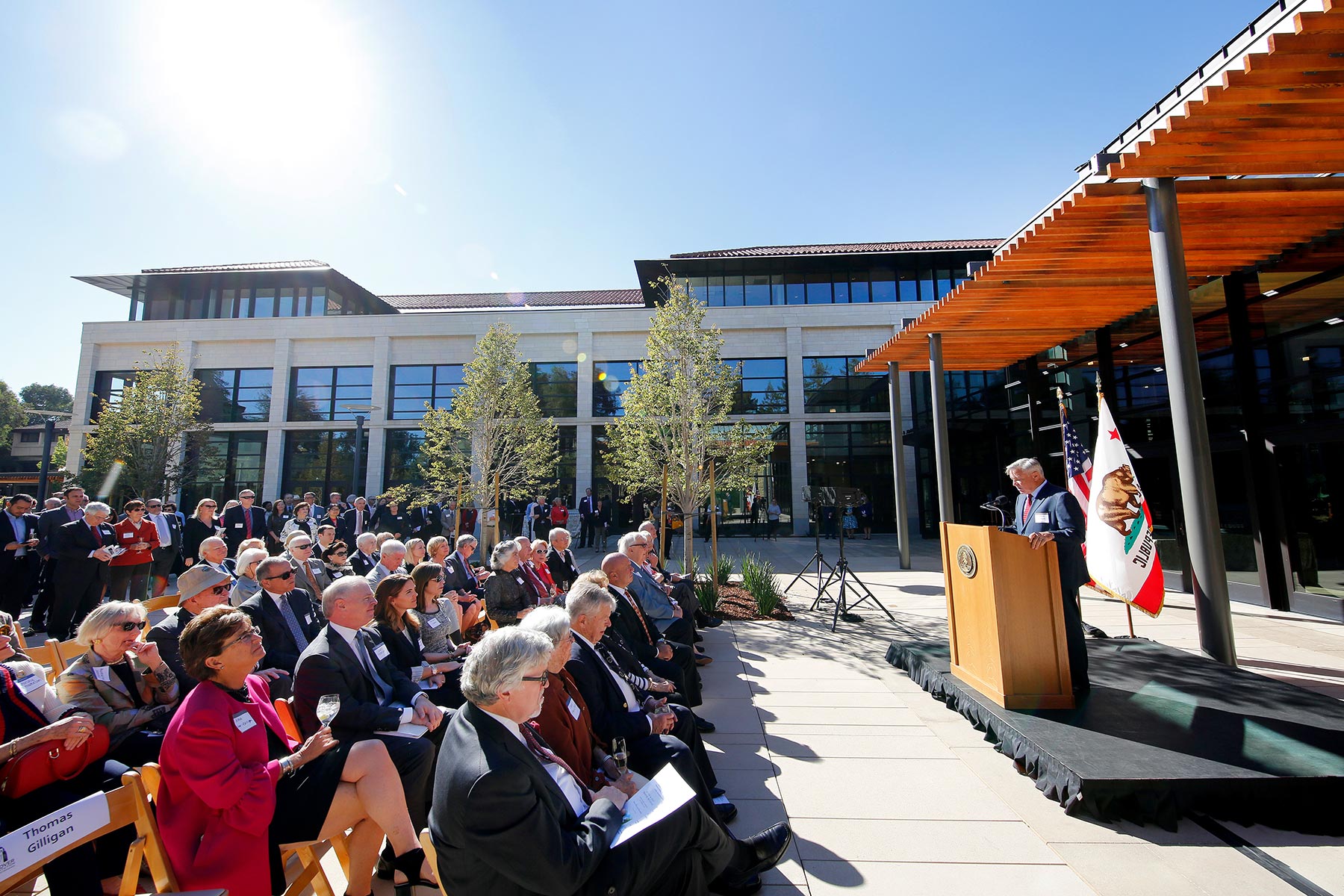
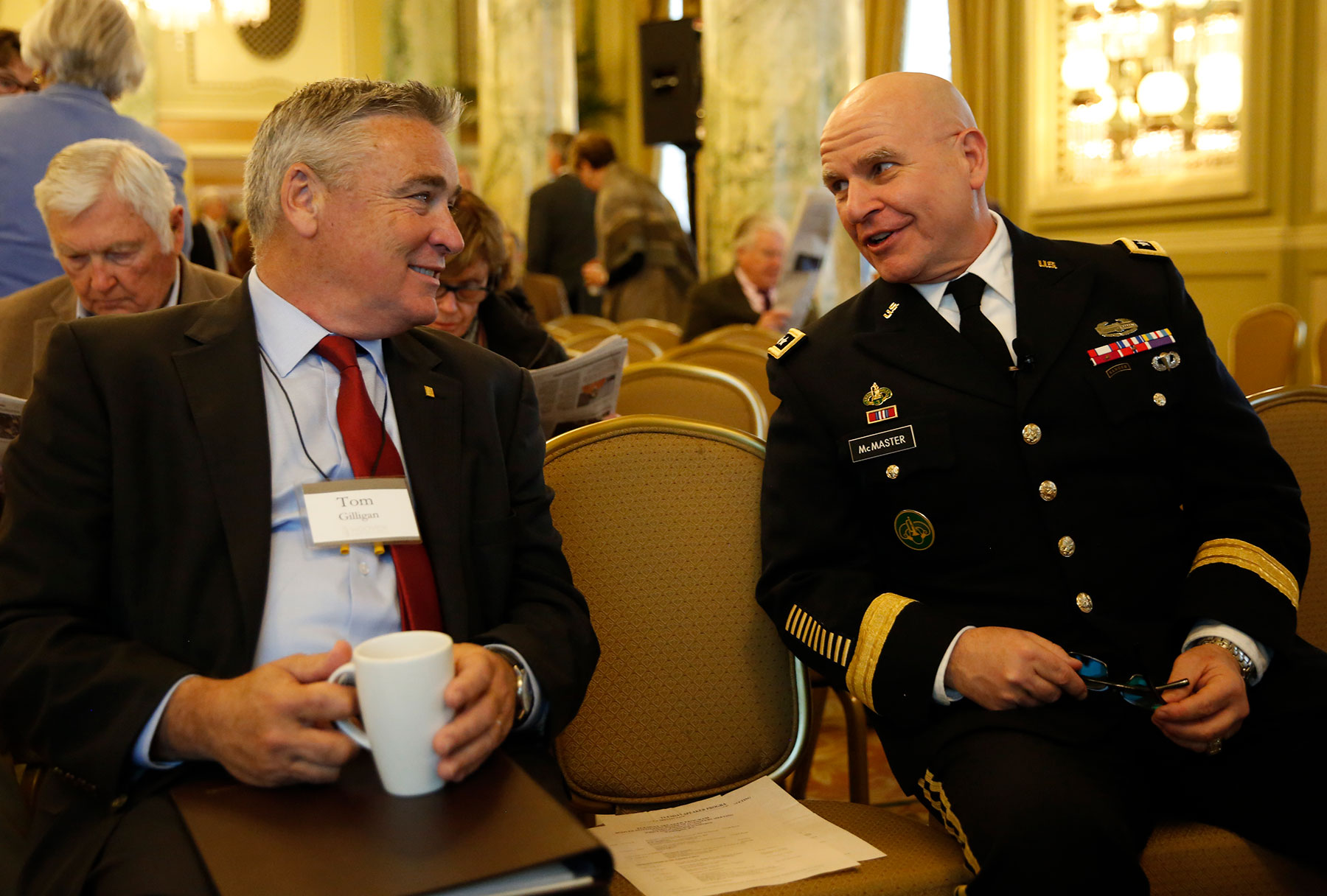
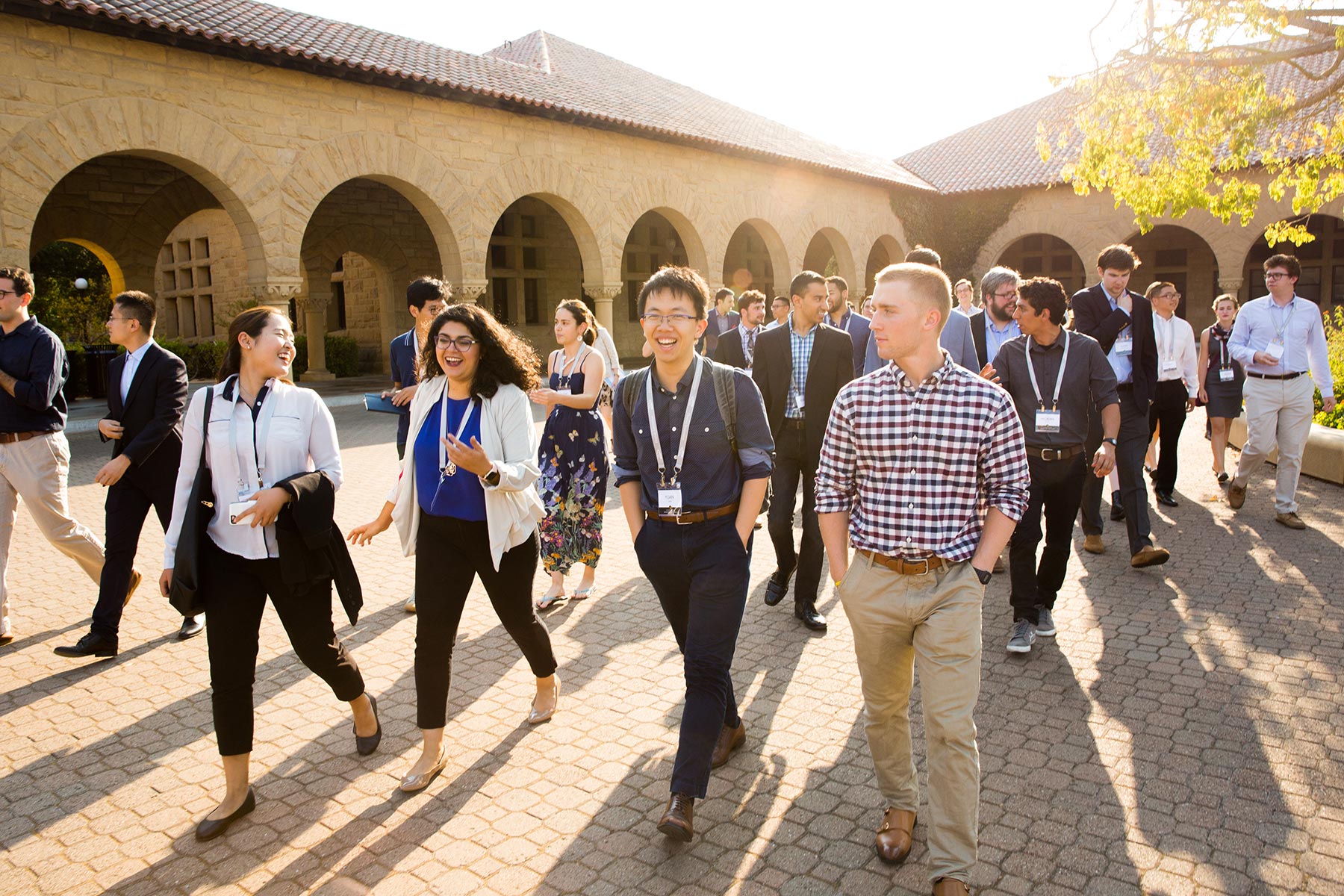
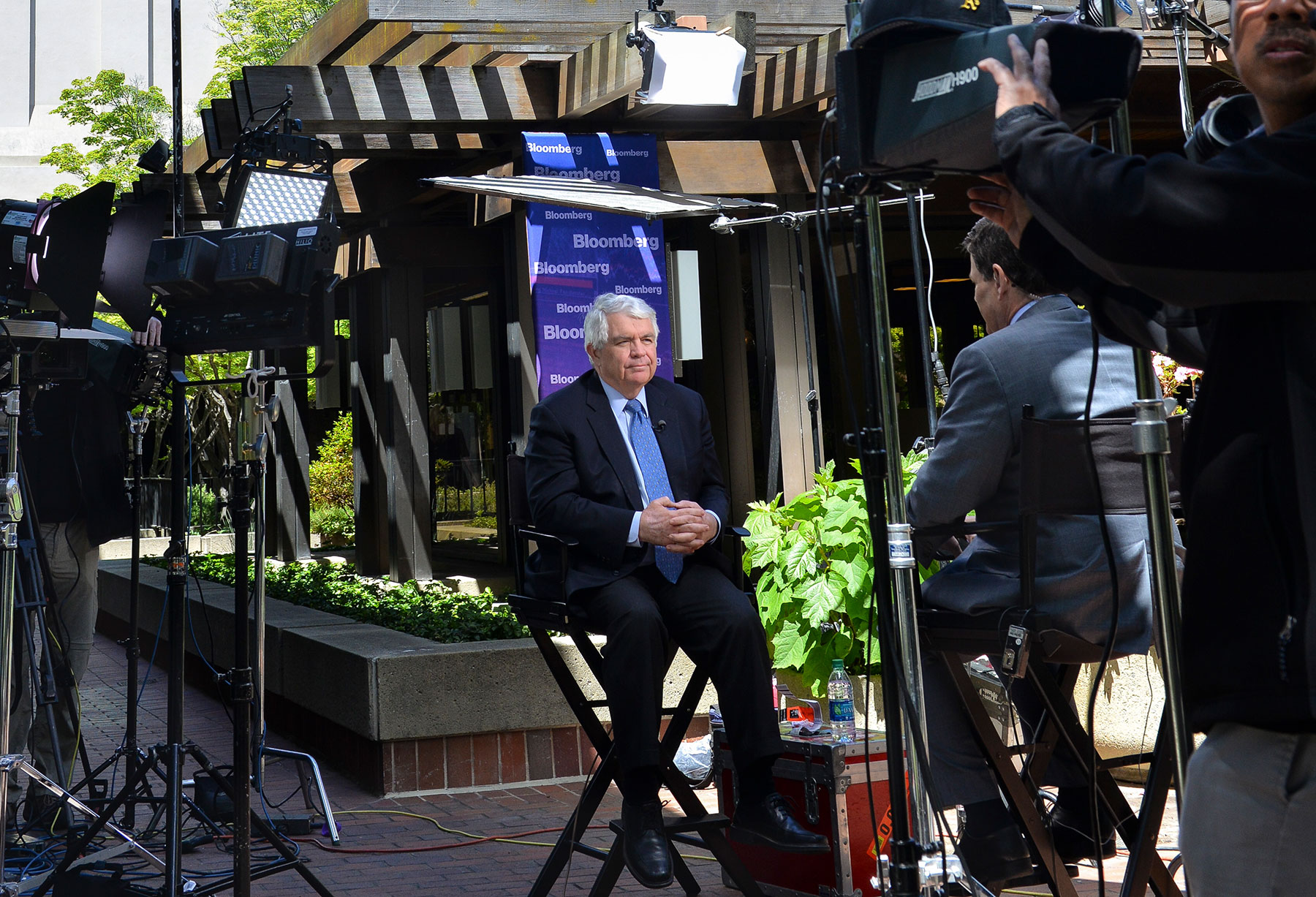
DSC_0478e.jpg)
